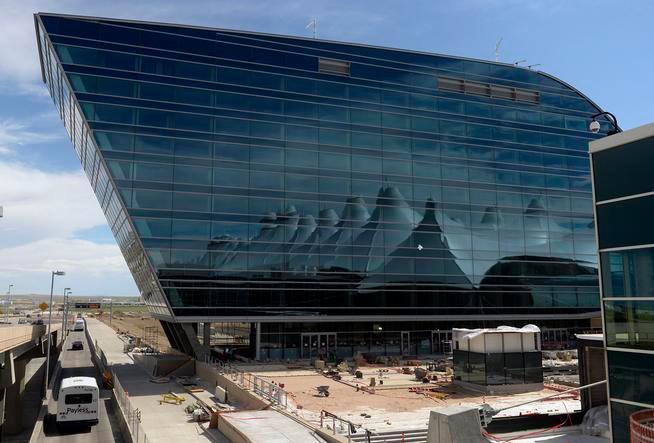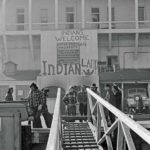Uncertain of what the future holds, more Colorado hotels are converting furloughs into layoffs as they wait for the state’s order limiting large group gatherings to lift.
In the past couple of days, the Westin Denver Downtown, the Hyatt Denver, Westin Denver International Airport, the Ritz Carlton Denver and Bachelor Gulch, the Sheraton Denver Downtown, and the W Aspen have informed the Colorado Department of Labor that they won’t bring back workers as quickly as planned and will convert furloughs into layoffs. More than 1,700 individuals are impacted in the latest round.
“We were hopeful that the restrictions and associated loss in revenue would be temporary,” Mark Stiebeling, general manager of the Grant Hyatt Denver informed the state in a letter under the Worker Adjustment and Retraining Notification Act. “With such a significant reduction in our business in a rapidly evolving situation, we have to make painful choices that would have seemed unthinkable just a short time ago.”
For the Grand Hyatt, that means laying off 314 furloughed workers. After June 20, those workers won’t receive benefits, such as health insurance coverage. The chances they will remain connected to the hotel diminish over time.
Hotels were considered essential businesses under the state’s stay-at-home order to contain the spread of the pandemic, and some remained open, despite a daunting drop in occupancy, which fell to 16.8% in April statewide, down from 66.3% a year earlier.
But group meetings and events, not leisure travel, are the big moneymakers for many hotels, accounting for 60% of revenues on average and 90% or more at some properties, said Amie Mayhew, president and CEO of the Colorado Hotel and Lodging Association.
Outside of restaurants, churches, gyms and pools, Colorado continues to limit gatherings to 10 or fewer people to stop the spread of the novel coronavirus. Absent a viable treatment or vaccine to prevent COVID-19, it is uncertain when authorities will get comfortable having hundreds of people mingle under one roof for hours on end.
The CHLA sent Gov. Polis a letter this week pressing the administration to provide long-term guidance on group gatherings. Even setting a distant date, months out, would be better than dropping restrictions a few days in advance, which has been the usual approach.
“We aren’t asking to host meetings today,” she said. “It’s not having an ability to know what we can do later this year. We need to work with our clients to plan for our events.”
And what if the outbreak flares up again or there is a second wave this fall, as some epidemiologists predict?
“We know something might change. If there was a spike in cases, the meetings might not happen. At least we can plan for it and deal with it down the road,” she said.
Mayhew said there isn’t a precise count on how many hotels and motels remain closed in the state. A recent survey found more than half weren’t accepting guests. The hotel industry directly employs about 100,000 people in the state, and estimates are that 70% of those workers are sidelined, Mayhew said.
As time goes on, more of those furloughs and temporary layoffs risk becoming permanent. Hotel properties already have the highest default rates in commercial real estate, at 20%, increasing the odds that they will land in foreclosure.
Not everything is bleak in the hospitality industry. Relaxed standards on road trips have helped boost occupancy at roadside motels. And some signature Colorado properties such as the Gaylord Rockies Resort in Aurora and The Broadmoor in Colorado Springs plan to reopen on a limited capacity this month, with a focus on attracting local guests.
This content was originally published here.





